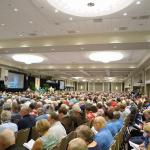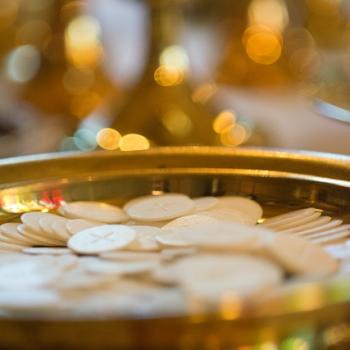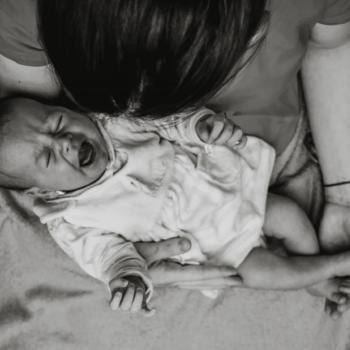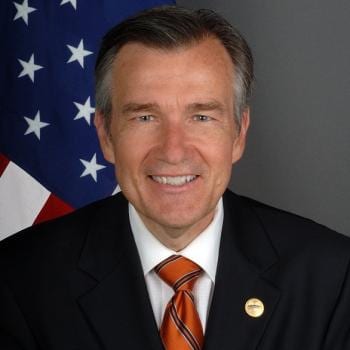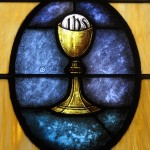The question popped up on Fr. Z’s blog a little while ago, and there was some discussion about it. The question, it seems, arises every few years.
I posted on it back in 2014, and quoted one liturgical expert who noted:
The liturgical blessing of the Mass is given to everyone gathered in the church just a few moments after the distribution of Holy Communion. This occurs when the priest, making the sign of the cross, says, “May Almighty God bless you, the Father, and the Son, and the Holy Spirit.”
In other words, there is no need to bless only some members of the congregation (e.g. children and non-Catholics) during communion, when the entire congregation is blessed by the priest just moments later.
In the second observation, we are reminded that within the context of Mass, blessings are the competency of the priest, not lay persons. Article 18 of the Book of Blessings notes that even though lay persons may give some blessings, “whenever a priest or deacon is present, the office of presiding [over a blessing] should be left to him.”
A 1997 instruction, Ecclesia de Mysterio, on the collaboration of the lay faithful further indicates that the laity should never say prayers or perform actions during the Mass which are proper to the priest, as this may lead to a confusion of roles. Since the blessing of the congregation during Mass is reserved to the priest, lay persons must avoid doing so.
Read more, including observations from Ed Peters, here.
Speaking for myself, I like to follow the Chaput model:
Parents and catechists should start teaching the mystery of the Eucharist at an early age. Children will soon begin to desire to receive holy Communion. This earnest desire to receive our Lord sacramentally is traditionally called a ‘spiritual communion.’ Regrettably, we don’t talk about spiritual communion as we once did. But Thomas Aquinas, Alphonsus Liguori and many other great saints strongly encouraged spiritual communion as a practice.
Both children and adults can make a spiritual communion. They may come forward with their arms crossed and bow before the Eucharist.
Then the priest, deacon or extraordinary minister could say to them kindly, ‘Receive the Lord Jesus in your heart.’
This is not a blessing, but an invitation to worship, so no gestures are made.
That short phrase can be uttered by anyone, lay or ordained, and seems both sensible and charitable. No muss, no fuss.

